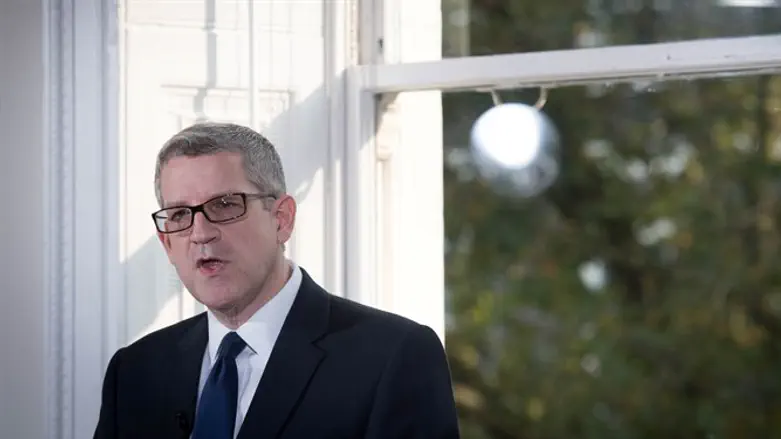
British intelligence services are facing an "intense" challenge from terrorism, MI5 head Andrew Parker warned on Tuesday, according to the BBC.
Parker said there was currently "more terrorist activity coming at us, more quickly" and that it can also be "harder to detect".
The UK has suffered five terror attacks this year, and he said MI5 staff had been "deeply affected" by them.
He added that more than 130 Britons who travelled to Iraq and Syria to fight with the Islamic State (ISIS) jihadist group had died.
MI5 was running 500 live operations involving 3,000 individuals involved in extremist activity in some way, he added.
20 attacks had been foiled in the last four years, including seven in the last seven months, Parker revealed, adding that all were related to what he called Islamist extremism.
The five attacks that got through this year included a suicide bombing attack after an Ariana Grande concert at Manchester Arena in May, killing 22.
Five people were killed in April during an attack near the Houses of Parliament, while eight people were killed when three attackers drove a van into pedestrians on London Bridge and launched a knife attack in Borough Market.
Another attack occurred when a man drove a van into a crowd of worshippers near a mosque in north London in June, while a homemade bomb partially exploded in a tube train at Parsons Green station last month, injuring 30 people.
In some cases, individuals like Khuram Butt - who was behind the London Bridge attack - were well known to MI5 and had been under investigation by the security services.
Parker was asked in his remarks in London what was the point of MI5 surveillance when someone who had made "no secret of his affiliations with jihadist extremism" had then been allowed to go on to launch a deadly attack.
He replied by explaining that the risk from each individual was assessed on a "daily and weekly basis" and then prioritized "accordingly".
"One of the main challenges we've got is that we only ever have fragments of information, and we have to try to assemble a picture of what might happen, based on those fragments," said Parker, according to the BBC.
He added that the likelihood was that when an attacked happened, it would be carried out by someone "that we know or have known" - otherwise it would mean they had been looking "in completely the wrong place".
Britain downgraded the nation's terrorism threat from critical to severe following the arrest of one of the suspects in the London Underground bombing.
A critical threat level means another attack is "expected imminently" while a severe threat indicates an assault is highly likely.
